
Canada’s Future Relies on Exploration Remote Site Services
Exploration remote site services play a foundational role in enabling Canada’s most strategically important industries to operate in some of

In Canada’s vast and resource-rich landscapes, remote site maintenance plays a pivotal role in sustaining the operations of work camps that support industries like mining, oil and gas, forestry, and construction. These camps, often located hundreds of kilometers from urban centers, require meticulous planning, logistical coordination, and community engagement to ensure they remain safe, functional, and culturally respectful. Increasingly, Indigenous and local community partnerships are shaping how these sites are managed—bringing not only economic benefits but also fostering reconciliation and long-term sustainability.
Work camps are more than temporary shelters—they are self-contained ecosystems. A well-run remote camp facility must provide housing, food, sanitation, recreation, and security for workers who may spend weeks or months away from home. The complexity of maintaining these facilities in secluded regions demands a robust and adaptive remote site maintenance strategy that includes everything from infrastructure upkeep to environmental stewardship.
Maintenance teams are responsible for ensuring that power systems, water treatment, waste disposal, and structural integrity are consistently monitored and repaired. These tasks are often performed under extreme weather conditions and logistical constraints, requiring specialized skills and a deep understanding of the terrain and local context.
Indigenous and community partnerships are no longer optional in Canada—they are expected and, in many cases, legally required through agreements like Impact and Benefit Agreements (IBAs). These partnerships are essential for the legitimacy, social license, and long-term success of projects involving remote site maintenance.
Such collaborations bring multiple benefits. They offer employment and business opportunities to local Indigenous communities while giving companies access to valuable local knowledge and human resources. Training programs, employment initiatives, and community-led subcontracting are common models of engagement. Many Indigenous communities now own or co-own service companies that provide services like remote food catering, environmental monitoring, and equipment rental, all contributing directly to the economic development of the region.
Additionally, traditional knowledge about the land, seasons, and environmental stewardship can guide better decision-making in site planning and sustainability. This strengthens trust between companies and communities and contributes to reduced project risk.
A significant area of Indigenous partnership lies in employment. Opportunities in remote camp attendant jobs, kitchen support, logistics, environmental services, and general maintenance have opened doors for many Indigenous workers. These roles provide transferable skills, long-term career development, and community wealth.
Several camps now feature Indigenous-led staffing firms or joint ventures offering remote camp cleaning jobs, cooking, maintenance, and logistical roles. These businesses enable communities to retain economic benefits while building local expertise.
Off-grid support includes a range of services, many of which are critical for sustaining hundreds of workers over long periods. These services include:
These services not only maintain the camp’s functionality but also significantly affect worker satisfaction and retention. Companies that provide a high standard of living and safety through these services often find that they attract and retain better talent, especially for longer rotations.
While the benefits of remote site maintenance and Indigenous partnerships are numerous, the challenges are also significant. High costs, difficult logistics, and extreme weather are just a few barriers companies face. Hiring locally helps address staffing shortages, while collaborative planning with Indigenous communities can reduce opposition and delays.
Cultural sensitivity is another critical component. Indigenous workers may have different expectations around work hours, communication, and authority. Proper cultural training for supervisors and support for Indigenous workers is essential. Some camps also host cultural awareness sessions for all staff to foster mutual respect and understanding.
Different industries operating in distant regions have unique maintenance needs. For example:
Beyond Indigenous partnerships, work camps also engage with nearby non-Indigenous communities to fill vital roles such as remote camp attendant jobs, remote camp cleaning jobs, and remote camp maintenance jobs. These positions provide stable employment and skills development in regions where economic opportunities may be limited.
Training programs, often developed collaboratively with local colleges and Indigenous training centers, prepare workers for specialized roles including remote camp security jobs, remote cleaning jobs, and remote housekeeping jobs. These initiatives emphasize safety, cultural sensitivity, and technical proficiency, ensuring staff are well-equipped to meet the unique challenges of isolated environments.
Each sector also generates various job categories that support the local economy. Many of these roles are increasingly filled by local Indigenous and community workers through partnerships that foster economic inclusion and sustainability.
Looking forward, there is a growing emphasis on sustainability, automation, and community involvement in worksite operations in Canada’s resource regions. Companies are investing in environmentally friendly waste systems, modular building technologies, and renewable energy sources to reduce their ecological footprint. At the same time, they are also increasing investments in training and capacity-building within Indigenous communities to ensure more long-term, skilled roles.
One emerging trend is the rise of Indigenous-owned businesses that provide comprehensive site services, from construction and cleaning to catering and logistics. These companies are not only creating jobs but also helping shape the industry through innovation and traditional knowledge.
Governments and corporations are also promoting policies that prioritize Indigenous procurement. These frameworks aim to create a fair and inclusive economic model where Indigenous communities become partners in development rather than passive stakeholders.
As industrial operations continue to expand into secluded and rural regions, building strong, respectful partnerships with Indigenous communities is more important than ever. These collaborations promote economic inclusion, cultural understanding, and sustainable development. By investing in local talent, supporting Indigenous-owned businesses, and fostering a high standard of living for workers, companies can create long-term value for both their projects and the communities they impact. Moving forward, the integration of Indigenous knowledge and community engagement will be critical to the future success of remote site maintenance in Canada.
Connect with the Domco Group today to learn how we support Indigenous partnerships and provide comprehensive solutions for your work camp needs.
Domco Group of Canada Limited is one of the most trusted and well respected remote sites service providers in Canada. Fully Canadian and independently owned, Domco has been in operation since 1945. We offer integrated remote site solutions, including a nutritious and well planned menu cycle, long-term relationship building, and deep Canadian roots in remote locations with Aboriginal communities.
Let us take you through some key advantages that set us apart.

Exploration remote site services play a foundational role in enabling Canada’s most strategically important industries to operate in some of

Selecting the right oil and gas facility maintenance provider is a pivotal decision for companies operating in Canada’s remote regions—from
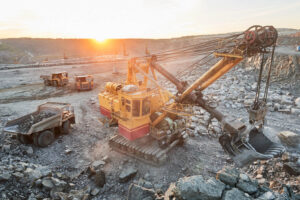
In Canada, mine camp management plays a key role in supporting workers at remote mining sites. These sites provide housing,
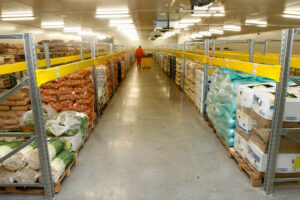
Remote food catering plays an important role in supporting workers across Canada’s most isolated job sites. Whether in the far
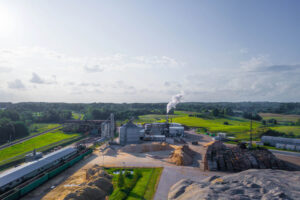
Remote camp maintenance jobs in Canada support the full lifecycle of temporary worksites—from setup (mobilization) to daily operations (maintenance) and

Remote catering companies play a vital role in supporting Canada’s vast and varied industries, especially those operating in isolated or

Oil and gas facilities management is a complex and critical discipline that ensures energy operations in Canada’s most remote locations
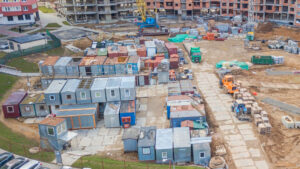
In the rugged, often isolated world of remote construction camps, construction facility management is the invisible force that sustains daily

Remote maintenance is the backbone of operational continuity in Canadian work camps, especially those located in isolated regions supporting industries
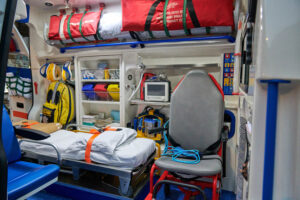
Remote camp health and safety is a vital concern in the management of Canadian remote workforce camps, especially in resource-driven

Keeping crews energized and satisfied starts with smart camp food menu ideas—especially in remote environments where morale and nutrition go

Gas remote camp mobilization is a critical operational phase in Canada’s oil and gas industry, particularly in remote and northern

When it comes to remote site security in Canadian work camps, ensuring safety and protection is paramount. These facilities, often

In Canada’s vast and resource-rich landscapes, remote site maintenance plays a pivotal role in sustaining the operations of work camps

In Canada’s vast and often isolated regions, remote camp management plays a vital role in advancing sustainability across diverse work
